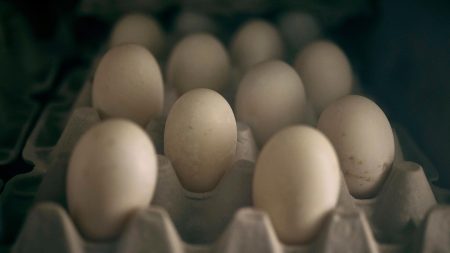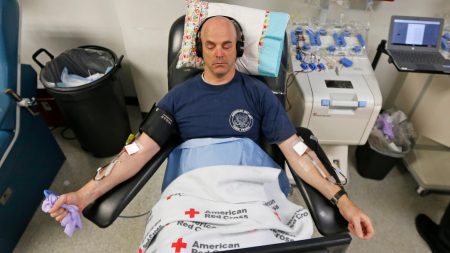A New Frontier in Organ Transplantation: The Story of Tim Andrews and the Pig Kidney Breakthrough
Introduction: The Organ Shortage and the Promise of Xenotransplantation
The shortage of available human organs for transplantation has long been a critical issue in healthcare, with over 100,000 people on the U.S. transplant waiting list, the majority in need of a kidney. Every year, thousands of these individuals die before receiving a transplant. This dire situation has driven scientists and medical professionals to explore unconventional solutions, including the use of animal organs for human transplantation, a field known as xenotransplantation. Among these innovations, gene-edited pig kidneys have emerged as a promising alternative. Recently, a 66-year-old man from New Hampshire, Tim Andrews, made history by becoming the second person to successfully receive a pig kidney transplant, marking a significant milestone in this groundbreaking field.
The Personal Journey of Tim Andrews: Fighting for a Second Chance
Tim Andrews’ journey to this historic transplant was nothing short of remarkable. About two years ago, his kidneys suddenly failed, forcing him onto dialysis. The treatment took a toll on his life, leaving him fatigued and vulnerable to complications. Andrews, a grandfather from Concord, New Hampshire, faced a bleak outlook. His doctors warned him that finding a matching human kidney could take seven years or more, due to his blood type. The odds were further stacked against him because of his health struggles, including diabetes and a heart attack. Yet, Andrews refused to give up. “I’ve seen my mortality, and I was ready to fight,” he said. Determined to explore every possible option, he approached Massachusetts General Hospital (Mass General) with an audacious request: could he receive a pig kidney instead?
The Medical Breakthrough: From Experimental to Promising
Andrews’ hope was not unfounded. In recent years, scientists have made strides in genetically modifying pigs to make their organs more compatible with the human immune system. These advancements have paved the way for clinical trials, including a pilot study at Mass General. Andrews was eager to join this study, but he first had to prove he was physically prepared for the procedure. At the time, Andrews was in poor health, struggling with diabetes and a slow-healing foot ulcer. Dr. Leonardo Riella, a transplant nephrologist at Mass General, recalled that Andrews was initially too weak to qualify. However, Andrews was undeterred. He embarked on a rigorous physical therapy regimen, losing about 30 pounds and transforming his health. Six months later, he returned to the hospital, almost unrecognizable. “He was running down the hallway,” Riella said. “He was a different person.”
With his health improved, Andrews underwent intensive medical evaluations to assess his suitability for the transplant. One critical concern was his cardiac fitness, as the first recipient of a pig kidney transplant at Mass General had died due to underlying heart disease. However, Andrews’ heart was deemed to be in “the best shape possible,” clearing the way for the surgery. On January 25, Andrews made history when he became the second person to receive a gene-edited pig kidney. The procedure was a success, and within hours, the pig kidney began functioning normally, producing urine and filtering waste without signs of rejection.
The Future of Xenotransplantation: A New Era of Hope
Andrews’ successful transplant comes at a pivotal moment in the field of xenotransplantation. While earlier attempts at animal-to-human transplants were short-lived, recent advancements have shown increasing promise. For instance, an Alabama woman who received a pig kidney transplant in November 2022 at NYU Langone Health has thrived for over two and a half months, providing new optimism for the field. Doctors are now moving beyond one-off experiments to more structured clinical trials. Mass General, for example, has FDA permission to perform two additional pig kidney transplants as part of its pilot study, using organs supplied by the biotech company eGenesis.
Another major step forward came when United Therapeutics, a developer of gene-edited pig organs, received FDA approval for the world’s first clinical trial of xenotransplantation. The trial initially plans to transplant pig kidneys into six patients, with the potential to expand to 50 more if the results are favorable. Dr. Tatsuo Kawai, the surgeon who led Andrews’ transplant and the world’s first pig kidney transplant, expressed cautious optimism about the future. “This is uncharted territory,” he acknowledged, but with lessons learned from animal research and prior human attempts, he believes long-term success is achievable. “I’m very optimistic,” Kawai said. “And hopefully, we can get to survival, kidney survival, for over two years.”
Tim Andrews’ Recovery and the Road Ahead
Andrews’ recovery has been nothing short of remarkable. Just one week after the transplant, he was discharged from the hospital and spent the next week in a Boston hotel near the hospital for daily checkups. He is now expected to return home to New Hampshire, where he will continue his recovery under close medical supervision. Reflecting on his experience, Andrews said, “When I woke up in the recovery room, I was a new man.” His pig kidney has functioned flawlessly, clearing waste and producing urine without any signs of rejection. Andrews’ success has also been a source of hope for others.
Despite his positive outcome, Andrews’ journey is far from over. If the pig kidney were to fail, he would still be eligible for a human transplant and would retain his place on the transplant list. For now, however, Andrews is focused on spreading hope to others facing similar challenges. He plans to return to his old dialysis clinic to share his story with patients who, like him, once felt they had no options. “I want to tell these people there’s hope,” he said. “No hope is not a good thing.”
Conclusion: A Beacon of Hope for Thousands in Need
Tim Andrews’ journey represents more than just a personal triumph; it symbolizes the potential for xenotransplantation to transform the lives of thousands of people awaiting organ transplants. While the field is still in its experimental stages, the progress made so far is a testament to human ingenuity and resilience. Andrews’ story, along with the ongoing clinical trials, offers a beacon of hope for those who have been waiting years for a second chance at life. As the medical community continues to refine and expand these technologies, the promise of xenotransplantation could one day alleviate the organ shortage crisis and save countless lives. For now, Tim Andrews stands as a living testament to the power of perseverance, innovation, and hope.















